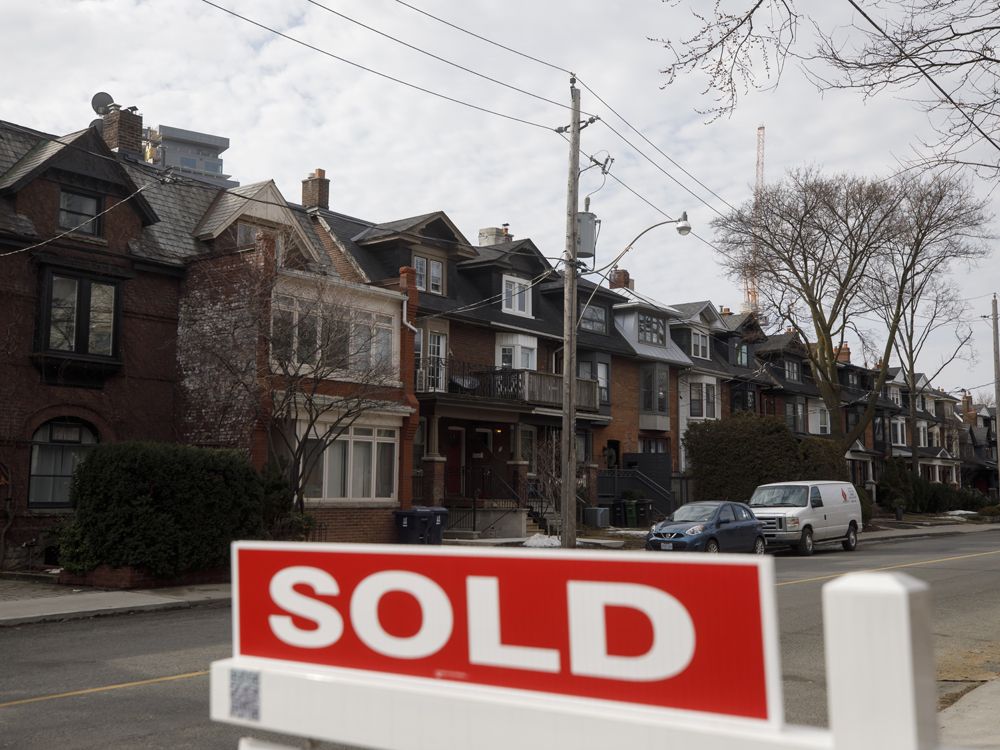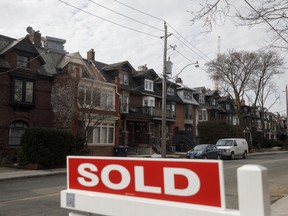Ontario, Alberta and Manitoba lead the provinces in Canada’s ‘chronic’ housing shortage, says Scotiabank

Ontario would need to build 650,000 more homes just to get to the national average

Article content
Ontario leads the provinces in a “chronic” housing shortage across the country which, if left unaddressed, will lead to higher home and rental prices that will reduce affordability nationally, according to a report by Bank of Nova Scotia.
Advertisement
Story continues below
This advertisement has not loaded yet, but your article continues below.
Article content
Canada’s most populous province, along with Alberta and Manitoba, fall well below the national average of housing stock per capita, Scotiabank chief economist Jean-François Perrault said in his report Wednesday. While comparing provinces to a national average will naturally find some fall short and some exceed the mean, the results aim to show how acute the undersupply is, he said.
“Ontario very much stands out in this respect. For Ontario to have the same level of homes per capita as the average in other provinces, over 650,000 additional housing units would be required,” Parrault wrote in the report .
Among the G7, Canada has the lowest average of housing supply per capita with 424 units per 1,000 people, which places the country right behind the United States and the United Kingdom. France, by comparison, leads the G7 at 540 units per 1,000. The pandemic, which allowed households to accrue record savings, along with extraordinary monetary and fiscal stimulus, stoked the country’s hot housing market and has pushed it into frothy territory over the past two years.
Advertisement
Story continues below
This advertisement has not loaded yet, but your article continues below.
Article content
Though housing starts have exceeded their pre-pandemic run rate in 2021, housing prices have continued to surge, with the national average price of a home hitting an all-time high of $720,850 in November. Given the size of the structural housing gap, the pace of construction is unlikely to meaningfully close it and expectations of strong immigration will exacerbate the pressure on housing, Perrault said.
Alberta would need to build 138,000 more units and Manitoba, 23,000 more units, to meet the national average. It’s important to note that while Ontario, Alberta and Manitoba fall short nationally, that doesn’t mean housing stocks in other provinces are adequate.
-

Canada needs a fresh approach to build desperately needed new homes
-

CMHC to review down payments on investment properties as part of federal strategy to tackle housing risks
-

Toronto, Vancouver home sales smash records in 2021
Advertisement
Story continues below
This advertisement has not loaded yet, but your article continues below.
Article content
Canada, overall, would need 1.8 million more dwellings to have the same number of homes per capita as the rest of the G7. The higher-than-normal housing supply in other provinces could also be a sign of shifting migration patterns, as people move to other areas of the country, boosting the number of houses in their province of origin. Newfoundland, for example, has had its population decline by 10 per cent since the mid-1990s while housing units have increased over that time.
There are encouraging signs, such as a push at federal and provincial levels to break ground on more housing. Both Ontario and British Columbia have implemented task forces to address the issue. In the last federal budget, Prime Minister Justin Trudeau’s government outlined $2.5 billion and a reallocation of $1.3 billion to speed up and support 35,000 affordable housing units.
“While these efforts are all welcome, what will matter most at the end of the day is actual progress in increasing supply in a responsible manner,” Perrault said. “History suggests that we have not been very good as a country in achieving this. Let’s hope current initiatives mark a solid break from past performance.”
• Email: bbharti@postmedia.com | Twitter: biancabharti
Advertisement
Story continues below
This advertisement has not loaded yet, but your article continues below.








